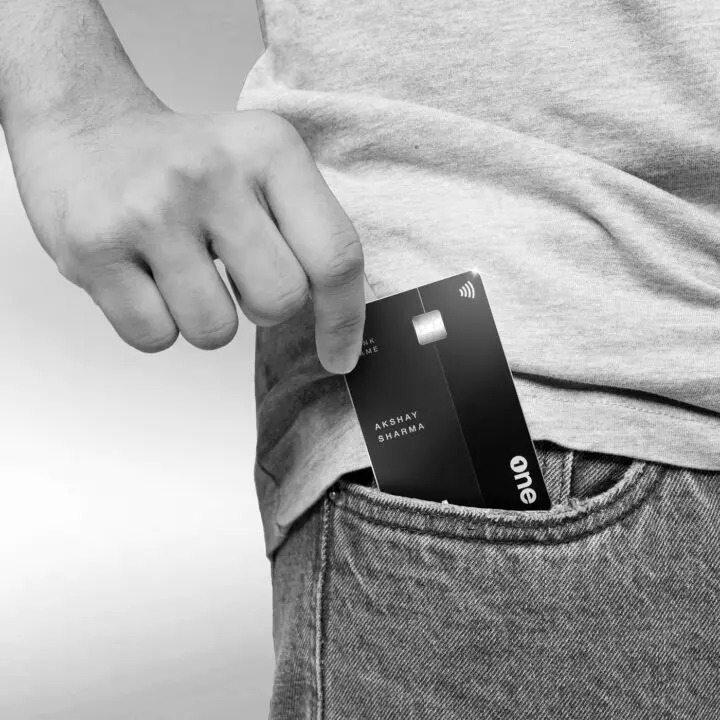What to Consider When Making a Credit Card to Bank Transfer

Every day, millions of people across India leverage the convenience of a credit card to bank transfer to manage their finances. It’s a great feature that can be a real game-changer when you need immediate funds. However, it’s not always a walk in the park. You must consider factors like high fees, and any hidden charges when making a credit card to bank transfer. If you don’t have a credit card yet, you can apply for a credit card in India or even apply for a credit card online with instant approval for convenience. This post will help you navigate this financial aspect.
Understanding Fund Transfers from Credit Cards to Banks

A Credit card to bank transfer is a process whereby you move funds from your credit card to a bank account. People generally make this transfer when they require quick access to cash in times of financial crunch or emergencies. When you apply for an instant credit card, it can provide the flexibility required for such transfers.
Please note that most credit cards in India cannot be used to make a direct bank transfer. However, there are a couple of “indirect” means to do so, mentioned later on in the blog. For those interested in such options, you can easily apply for a credit card online with instant approval.
When you perform a credit card to a bank transfer, you essentially borrow money from your credit card issuer and deposit it into your bank account. It’s important to remember that this is a loan that must be repaid, usually with interest and fees. It is commonly used when unforeseen circumstances arise, like medical emergencies, and you are short of funds. If you need a card for these purposes, apply for a credit card in India for convenience and quick access to funds.
Common Fees and Charges
When making a credit card fund transfer, understanding the common credit card charges and fees involved is helpful. Here’s what you need to know:
- Transaction Fees: Most credit cards in India charge a fee for each transfer, usually a percentage of the transferred amount. For instance, if your credit card issuer charges a 3% transaction fee and you transfer Rs 10,000, you’ll pay Rs 300 as a transaction fee.
- Interest Charges: Interest charges kick in immediately when you make a fund transfer from your credit card to your bank. The rates can be considerably higher than those for regular purchases, so it’s essential to pay off the balance quickly to avoid excessive charges.
- Processing Fees: Some card issuers also charge a processing fee for facilitating the transfer. The fee varies across different credit card providers.
Factors to Consider When Making a Transfer

Before initiating any fund transfer from credit card to the bank, considering the following factors that can save you from unexpected expenses:
- Evaluate the Need: Is the transfer absolutely necessary? Can the payment be deferred or made through another means? Answering these questions can help you make a sound decision.
- Consider the Costs: Tally up the fees and interest you’ll incur and compare it against other options. You might find other modes of payment, such as online transfers or UPI payments.
- Check Your Credit Limit: The amount you can transfer is limited by your credit card limit. Exceeding this limit can result in additional over-limit fees.
- Assess the Impact on Your CIBIL Score: High credit utilisation and failure to repay on time can negatively affect your CIBIL score.
- Review the Terms and Conditions: Before proceeding, make sure you’ve read and understood the terms and conditions and credit card charges associated with the transfer.
How to Make a Transfer

There are two primary methods that you can use to make a transfer: online and offline.
Online transfer
Mobile App or E-Wallet:
- Download the app or digital wallet.
- Add bank account details.
- Enter the amount, and select the credit card.
- Confirm transfer and it will be processed within hours.
Offline Transfer
ATM Cash Withdrawal:
- Insert credit card at ATM.
- Choose the “Cash Withdrawal” option.
- Enter the transfer amount, get cash.
- Deposit cash into the bank account.
Weighing the Risks and Benefits

The allure of immediate funds might make a credit card fund transfer seem like the perfect solution, but it’s important to weigh the potential risks and benefits before diving in:
Benefits
- Immediate Access to Cash: A fund transfer provides an immediate influx of cash in your bank account, making it an effective solution during emergencies.
- Convenience: With just a few clicks on your smartphone or laptop, you can make the transfer. It’s as simple as that. You don’t need to visit your bank to fill out any paperwork.
- Flexibility: This method allows you the flexibility to use the money for any purpose you need, whether it’s paying off another debt, covering unexpected expenses, or making a purchase
Risks
- High-Interest Rates: These transactions often come with high-interest rates, which can add a significant amount to the total repayment amount.
- Potential for Debt Accumulation: If you cannot repay the amount within the grace period, the interest can pile up, leading to a potentially significant debt.
- Impact on Credit Score: Regularly using this method and failing to repay on time can adversely impact your CIBIL score.
Summing Up
A credit card to bank transfer can be a convenient tool to bridge financial gaps, but it comes with its own set of costs. Armed with knowledge about the associated fees, the potential impact on your credit score, and the overall terms and conditions, you can confidently make an informed decision and navigate the world of credit cards.
So, the next time you’re considering such a transfer, ensure that it’s the most suitable option for your financial needs.




